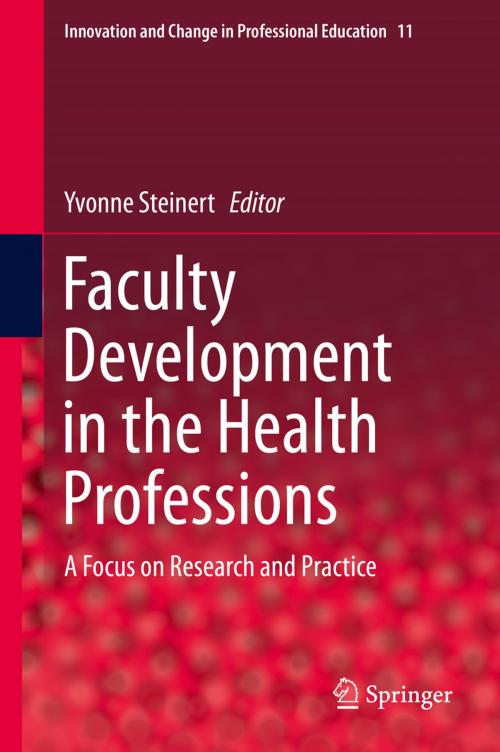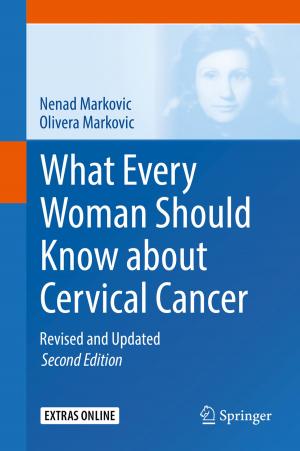Faculty Development in the Health Professions
A Focus on Research and Practice
Nonfiction, Reference & Language, Education & Teaching, Counseling & Guidance, Higher Education| Author: | ISBN: | 9789400776128 | |
| Publisher: | Springer Netherlands | Publication: | January 31, 2014 |
| Imprint: | Springer | Language: | English |
| Author: | |
| ISBN: | 9789400776128 |
| Publisher: | Springer Netherlands |
| Publication: | January 31, 2014 |
| Imprint: | Springer |
| Language: | English |
This volume addresses all facets of faculty development, including academic and career development, teaching improvement, research capacity building, and leadership development. In addition, it describes a multitude of ways, ranging from workshops to the workplace, in which health professionals can develop their knowledge and skills. By providing an informed and scholarly overview of faculty development, and by describing original content that has not been previously published, this book helps to ensure that research and evidence inform practice, moves the scholarly agenda forward, and promotes dialogue and debate in this evolving field. It will prove an invaluable resource for faculty development program planning, implementation and evaluation, and will help to sustain faculty members’ vitality and commitment to excellence.
Kelley M. Skeff, M.D., Ph.D., May 2013:
In this text, Steinert and her colleagues have provided a significant contribution to the future of faculty development. In an academic and comprehensive way, the authors have both documented past efforts in faculty development as well as provided guidance and stimuli for the future. The scholarly and well-referenced chapters provide a compendium of methods previously used while emphasizing the expanding areas deserving work. Moreover, the writers consistently elucidate the faculty development process by highlighting the theoretical underpinnings of faculty development and the research conducted. Thus, the book provides an important resource for two major groups, current providers and researchers in faculty development as well as those desiring to enter the field. Both groups of readers can benefit from a reading of the entire book or by delving into their major area of interest and passion. In so doing, they will better understand our successes and our limitations in this emerging field. Faculty development in the health professions has now received attention for 6 decades. Yet, dedicated faculty members trying to address the challenges in medical education and the health care delivery system do not have all the assistance they need to achieve their goals. This book provides a valuable resource towards that end.
This volume addresses all facets of faculty development, including academic and career development, teaching improvement, research capacity building, and leadership development. In addition, it describes a multitude of ways, ranging from workshops to the workplace, in which health professionals can develop their knowledge and skills. By providing an informed and scholarly overview of faculty development, and by describing original content that has not been previously published, this book helps to ensure that research and evidence inform practice, moves the scholarly agenda forward, and promotes dialogue and debate in this evolving field. It will prove an invaluable resource for faculty development program planning, implementation and evaluation, and will help to sustain faculty members’ vitality and commitment to excellence.
Kelley M. Skeff, M.D., Ph.D., May 2013:
In this text, Steinert and her colleagues have provided a significant contribution to the future of faculty development. In an academic and comprehensive way, the authors have both documented past efforts in faculty development as well as provided guidance and stimuli for the future. The scholarly and well-referenced chapters provide a compendium of methods previously used while emphasizing the expanding areas deserving work. Moreover, the writers consistently elucidate the faculty development process by highlighting the theoretical underpinnings of faculty development and the research conducted. Thus, the book provides an important resource for two major groups, current providers and researchers in faculty development as well as those desiring to enter the field. Both groups of readers can benefit from a reading of the entire book or by delving into their major area of interest and passion. In so doing, they will better understand our successes and our limitations in this emerging field. Faculty development in the health professions has now received attention for 6 decades. Yet, dedicated faculty members trying to address the challenges in medical education and the health care delivery system do not have all the assistance they need to achieve their goals. This book provides a valuable resource towards that end.















